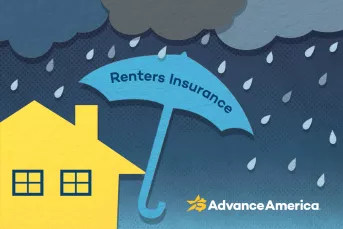
What Does It Mean to Default on a Loan?
Defaulting on a loan is when you fail to repay the debt according to your loan agreement. Depending on the loan and lender, you might default after missing one or several payments. Either way, going into default can negatively affect your credit score.
Here's what it means to default on a loan, what the potential consequences are, and how to remedy the problem.
Loan default definition
A default occurs when you miss a loan payment. Also referred to as a debt default, when you enter default can vary by lender. This could mean that you default on a loan after missing six payments in a row — or it could mean defaulting after missing a single payment.
If you expect you might miss a loan payment for any reason, you'll want to review your loan's terms and conditions carefully to ensure when default occurs and reach out to your lender to see what remedies are available.
Defaulting on a secured vs. an unsecured loan
The penalties for defaulting on a secured versus an unsecured loan differ.
Secured loans require you to offer something to the lender as collateral to secure the loan. If you default, the lender keeps the collateral to cover the debt. This means you risk losing your car, home, or whatever else you used as collateral when you default on a secured loan.
An unsecured loan, on the other hand, doesn't require collateral. Instead, the lender assesses your creditworthiness by reviewing your credit score and financial situation. With this type of loan, you don't risk losing something of value if you can't repay your debt. Instead, you may accrue additional fees and penalties and face legal ramifications if you default.
What happens when you default on a loan?
Defaulting on a loan has different ramifications depending on the type of loan you have.
Auto loan default
When you want to buy a new or preowned vehicle but can't afford to pay for it in full, you may need to purchase it by taking out an auto loan. As long as you make the monthly payments, the vehicle is yours to drive.
Auto loan defaulting will vary from lender to lender. In many cases, you are considered in default after missing a single payment. When this happens, the lender can repossess your vehicle, leaving you without a means of transportation. You will also have to pay the repossession fees.
Student loan default
Higher education is expensive, and given how common student loans are, it should come as no surprise that they're among the most common loans to default on.
Private student loans are typically considered in default after four months of missed payments, whereas you can go up to nine months without paying federal student loans before they're considered in default.
Once you default, however, the lender can garnish your wages, withhold federal benefits, and more. Defaulting on a federal student loan can also result in your tax refund getting withheld.
Mortgage default
Most aspiring homeowners will need to qualify for a mortgage to purchase a house. Mortgages are a special type of loan offered by banks and credit unions that are used homebuying purposes. Most lenders will give you a 30-day grace period for late payments on a mortgage before they contact you and request payment.
If you default on a mortgage, whoever the lender is can foreclose on your home and take it from you. They can also charge you outlandish fees and fines, and you may have to pay the difference if the house resells for less than what remained of your mortgage. Defaulting on a mortgage is usually when you miss up to four consecutive payments.
Personal loan default
Personal loans, including Installment Loans, Payday Loans, and Lines of Credit, also have default penalties. These penalties will vary from lender to lender and from loan to loan.
In most cases, missing a personal loan payment will result in additional fees that get tacked on to your debt, increasing the total amount you owe. This typically happens after the first missed payment, and depending on the terms and conditions, the lender may or may not have to notify you. However, you generally aren't considered in default until three or four months of missing payments.
Once you default, your lender may report it to the three major credit bureaus, and the default will go on your credit report. This can make it harder to get approved for loans in the future.
What to do if you default on a loan
Defaulting on a loan can be a frightening experience, but you do have options.
Debt consolidation
One of the best ways to resolve a loan default is to take out a second loan to pay off the one you defaulted on. This is known as debt consolidation and is an effective way to get out of financial trouble.
Depending on the lender, however, you may not be able to consolidate debt once you've defaulted. The lender may already take action to repossess your collateral, foreclose on your home, or otherwise penalize you for missed payments. You can keep this from happening by paying attention to your loans and consolidating your debt before you default.
Refinancing
Similar to debt consolidation, refinancing is another financial solution that can help you avoid defaulting on a loan. You might refinance before or after missing a payment, but in general, you must refinance before you default. Refinancing a personal loan can give you a longer repayment period and lower your interest rates to make your monthly payments more affordable.
Risk of potential penalties
If you are late on your monthly payments and don't consolidate your debt or refinance on time, you risk defaulting on it. When this happens, your lender can pursue action against you. The action they take will depend on the type of loan you are defaulting on and the terms and conditions of the loan. This often includes losing assets, accruing fines, credit score ramifications, and even legal action.
Avoid default with a personal loan from Advance America
If you're worried about defaulting on a loan, consider the financial solutions available at Advance America. Our Lines of Credit and Installment Loans can be ideal for consolidating debts, while our Payday Loans can help you avoid missing a payment.
Start your online loan application now or visit your nearest Advance America location today!
Notice: Information provided in this article is for informational purposes only. Consult your attorney or financial advisor about your financial circumstances.


